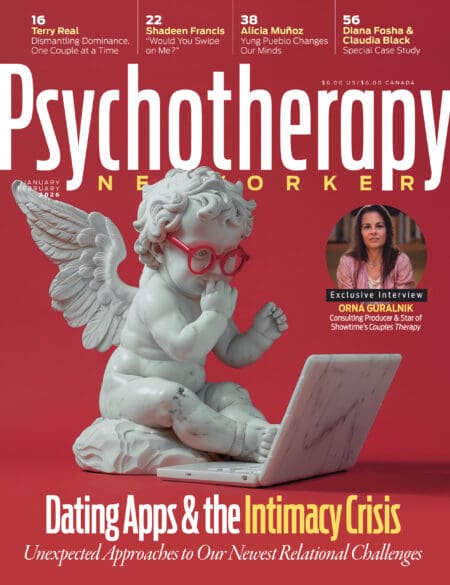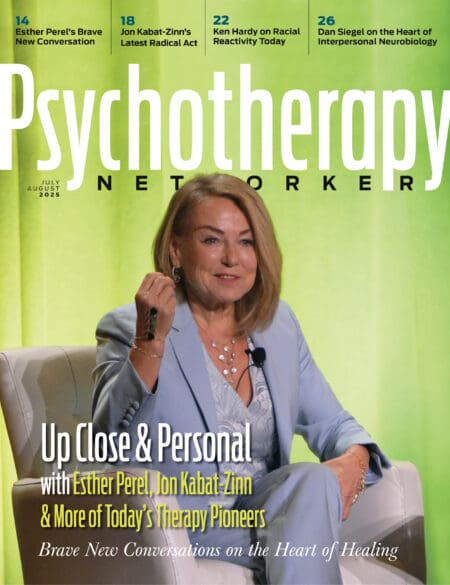Enjoy the audio preview version of this article—perfect for listening on the go.
My first entry into entrepreneurship was in the form of a private practice. I had a full-time job on top of it and no marketing plan, which was fine because most of my clients came through word-of-mouth referrals. But after a while, I realized that while my private practice provided supplemental income, I didn’t have a growth plan and wasn’t building wealth. The only way I made money was when I was seeing clients or writing reports. It’s what I call being “on the hour for the dollar.” If you don’t work, there’s no income coming in. This is my definition of a “survival private practice,” a business where the owner only earns revenue when they themselves provide a service.
Don’t get me wrong—I was proud of my survival practice, and it gave me supplemental income that allowed me to travel and provide some perks for my family. By intentionally saving money and being frugal, I was also able to pay off my student loan debt from the government of Barbados and save money for a down payment on my first home.
But my survival private practice had only active income sources; I had no system in place to generate passive income, such as through book royalties, on-demand courses, or online product sales. And I had no system to build generational wealth, accumulated assets that you pass down through the generations. As a result, I wasn’t sleeping a whole lot because I didn’t know how to shut off and because not working meant not earning.
In essence, I was chasing money. I said yes to just about every opportunity that came my way regardless of whether it was a fit for my business or not. For a long time, I saw anyone who wanted a therapist or a forensic evaluation. I rarely negotiated my speaking or workshop fees and accepted very low rates. I was operating in survival mode, and eventually this led to my first bout of burnout.
The truth is, it’s unsustainable to live by working all the time. Plus, chasing money isn’t a productive or effective way to run a business—you end up with a business that has no purpose, vision, or mission. Warren Buffet’s quote, “If you don’t find a way to make money while you sleep, you will work until you die,” was definitely what was happening to me.
After being in private practice for over 10 years, on top of my full-time job and being a mom of two, I experienced another bout of burnout. In an effort to re-envision my business, I applied to and was accepted into two leadership-development programs, which helped me rethink my professional goals and inspired me to pursue full-time entrepreneurship instead of trying to rise up the ranks at my primary place of employment. But guess what I did next? I applied for three full-time positions instead. When I didn’t receive any offers, it seemed like the universe had found a way to say, “Stop it, you’re not pursuing your purpose.”
At the same time, my marriage was at a crossroads. I desperately wanted to work with a Black woman therapist, but I had the hardest time finding one. Six months later, my husband and I finally got connected to a couples therapist—a white couples therapist. It wasn’t what we wanted, but we needed therapy. I couldn’t believe how difficult it was to find a therapist of color, so I knew I had to do something about it.
That was how the seed was planted for InnoPsych, the company I founded, with a mission to disrupt racial inequities in mental health. As I started to explore growth opportunities, I dove deep into my research about entrepreneurship, learning about the ups and downs and how to face failure and orchestrate comebacks. I was excited about the journey, but the best part was shifting my mindset from hustling to thriving, to building wealth, and to growing enterprises, not just businesses. I was fired up, and I was ready.
At any 9-5 job, my salary would always be limited and determined by someone else. There’d always be a ceiling on my income, no matter how hard I worked or what I contributed to the organization. One reality I had to acknowledge is that as a Black woman, little value was placed on my contributions, my talent, or my excellence. The other is that the mental health industrial complex—the system of pharmaceutical companies, health insurance payers, police, prisons, social services, and mental health institutions—puts profit over patient care or provider care, and punishes and controls people who come from intentionally underinvested and historically excluded groups.
It functions on capitalism and maintaining power: those on the front lines see patients (mostly where therapists of color are directed), and those in leadership (mostly white) make decisions for providers and clients; control funding, salaries, and reimbursement rates; and generally serve as gatekeepers to the field. So, in some ways, it’s by design that we are not taught how to use our expertise to expand our finances, because we’re needed on the front lines. Unfortunately, the mental health industrial complex can be exploitative, and BIPOC therapists end up burning out due to high caseloads, lack of resources, and inattention to professional growth. Sometimes, we even end up leaving clinical work behind or leaving the field altogether.
While it was extremely frightening to think about leaving the security of a regular paycheck, good health insurance, paid vacation and sick time, and a team of coworkers, I knew I needed to do make a change in order to avoid burning out in the long run. To make the shift, I began to focus more on what I call soul-care. Soul care begins by asking, “What do I need?” and then engaging in self-nurturing rituals to bring harmony to mind, body, and spirit. The reality is that to launch and grow a thriving business, you have to be in a thriving place too. If an entrepreneur is stressed out, it shows up in their business practices, interactions, and decisions. It shows up in how they communicate with customers, vendors, and their team. It impacts how they make decisions, resolve problems, and show up for themselves. Developing practices to stay grounded during tough times and to manage the emotional roller coaster, mindset challenges, and physical toll of entrepreneurship is a must. Of course, making time for soul-care can be tricky, especially if your perception of time gets warped by your passion, or if your burned-out brain is in control. Knowing about soul-care and doing it are very different things.
Many entrepreneurs put their business at the center of their lives, but I believe it should be the other way around. Without you, there is no business—and your clients can’t be served. This is why soul-care is so crucial on the entrepreneurship journey. Entrepreneurs need to move, rest, and get adequate sleep (prolonged sleep issues like insomnia can impact your mental health and cause disruptions in your cardiovascular and endocrine systems, leading to heart problems, high blood pressure, diabetes, and other chronic health issues already disproportionately impacting Black people). They need to eat nutritious foods that nourish their brains, to make sure they have social support, to develop routines that help them stay focused on their goals, to make mental space for gaining awareness and reflecting on their vision and goals, and to tap into their spiritual beliefs.
While our graduate programs have not prepared us for entrepreneurship, we need to refuse the narrative that we are not entrepreneurs. For people of color who’ve been systematically excluded from the mental health field, from owning businesses, and from being owners of private practices, entrepreneurship matters—and can even be an antidote to the inevitable burnout that arises from operating within oppressive and exploitative systems. More people of color are seeking therapy, and as a result, the demand for BIPOC mental health providers has skyrocketed. We need more BIPOC therapists in the field, as private practice owners and entrepreneurs for our communities and clients, and to build generational wealth for their families because representation matters. With the current trends in mental health, there’s a vital need for our therapy services and our culturally affirming and inclusive businesses. Black therapists have the power to change the field and the entrepreneurial landscape embedded within it.
Adapted from The Black Therapist’s Guide to Private Practice and Entrepreneurship, Copyright © 2025 by Charmain Jackman. Used with permission of the publisher, Norton Professional Books, a division of W. W. Norton & Company, Inc. All rights reserved.
Charmain Jackman
Charmain Jackman, PhD, is an award-winning psychologist and entrepreneur who has been coaching therapists on entrepreneurship for over a decade. She believes that there is a business in every therapist and her mission is to ensure that therapists have the tools they need to skillfully navigate the complicated entrepreneurial journey. She is based in the Greater Boston area.













